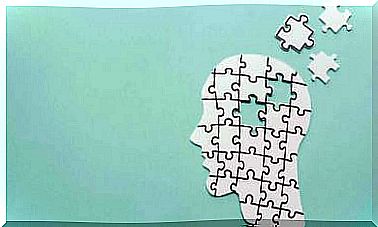The Challenge Of Living With Divergent Opinions

Conflicts start when there is disagreement or opposition in terms of values, beliefs or interests between two or more people. Disagreement is not the conflict itself, but it is its cause. Conflict arises when this disagreement leads us to take steps to eliminate, neutralize or minimize the opponent. After all, how can we live with divergent opinions?
Sometimes the confrontation takes place in verbal terms. The goal is to persuade or impose your own motives on the other. At other times, conflicts generate direct actions that can be direct or veiled violence. In all cases, the goal is always the same: for one opinion to win and prevail over the other.
However, there are circumstances in which neither party succeeds in defeating the other. In such cases, there are three ways to resolve the issue. The first one is “turning the page”, ignoring the contradiction and strengthening other aspects of the relationship. A variant of this would be to solve the problem by building new agreements that satisfy both parties.
The second way is to draw a line and keep your distance: conflict ends the relationship. The third path is to persist in the disagreement and maintain the relationship despite everything. In this case, the conflict ends up taking root.

The deep-rooted conflicts
We say that conflicts are rooted when a situation occurs in which none of the parties involved is able to defeat the other. There is, so to speak, a balance of forces. However, instead of ending the confrontation, since no one can win, the contradiction perpetuates itself. People learn to live with this situation, without solving it and without putting an end to it.
This type of situation only occurs when, alongside the conflict, there are also strong ties that unite the parties. If that were not the case, each person involved would simply walk away or make strong decisions to keep the other person at bay.
In deep-rooted conflicts there is a whole context of agreements, values, beliefs and interests in common. On the other hand, there is also some aspect or element in which a fierce confrontation takes place. These types of problems are very common among couples, close friends or relatives.
Of course, where there are human beings, there is conflict. In fact, many of these conflicts are unresolvable, however, we have learned to deal with them. We know that a certain person does not agree with us on some issue, but instead of “putting fuel to the fire”, we learn to live with divergent opinions and minimize the importance of this contradiction. It’s an adaptive and healthy way to deal with this kind of difficulty. What is unhealthy is nurturing disagreement and always pushing it to the limit.
Is there a solution to live with divergent opinions?
There is always a solution to all human conflicts. Sometimes it just takes a little goodwill. Without it, even the smallest disagreements end up eroding a relationship. What happens with deep-rooted conflicts is that the parties involved value “not giving in” more than finding a way out. The possibility of not imposing yourself is a great loss.
A group of researchers from the universities of Tel Aviv, Jerusalem and Herzliya discovered several interesting aspects. One of them is that when someone is visibly involved in one or several conflicts with another person, he understands the arguments he uses as threats. In other words, giving reason to the other is acting against oneself.

Based on this, the researchers ran a test: they showed a group of Israeli fanatics a series of videos related to their beliefs. The material gave full credence to his beliefs about the Palestinians: for example, the total disappearance of Muslims, their complete degradation and stoning by every country in the world. In this way, they did not contradict the beliefs of those surveyed, but took them to the extreme.
The result was that those who watched these videos were more willing to re-evaluate their beliefs. In other words, they opened a space for self-criticism. The best part was that, some time later, it was found that this change in attitude persisted over time. The researchers called it “paradoxical thinking”, which consists of the ability to admit that we can live with divergent opinions in peace. Do you believe this can be applied to our personal life?









